NCOAE Blog
SOAP Notes Keep Wilderness Medicine Clean
Wilderness MedicineIn the context of wilderness medicine, soap and SOAP are both indispensable. An explanation is in order. We’re all familiar with lower-case soap. This noun refers to a substance that’s added to water to remove dirt, grease, grime, and germs from various surfaces, including skin, hair, clothing, pots and pans, and so on.
Soap In The Wilderness
Traditional soap works in two ways — as a surfactant to break water tension, improving water’s ability to penetrate surfaces, and as a molecule that has a love-hate relationship with water. Soap molecules have two ends, one that’s hydrophilic (loves water) and the other that’s hydrophobic (hates water). The hydrophilic end binds to water, while the hydrophobic end binds to anything other than water — dirt, grease, grime, germs. Imagine soap molecules as tiny carabiners that shackle dirt molecules to water molecules to enable the water molecules to usher them away.
In backcountry and wilderness settings, soap plays a vital role in preventing infection and transmission of disease. In fact, scrubbing vigorously with soap and water may be among the most important risk-management technique you practice during your time in the wilderness.
SOAP (Subjective, Objective, Assessment, Plan)
Now let’s move on to the other SOAP — all uppercase — which is an acronym for Subjective, Objective, Assessment, and Plan. As an outdoor educator, field instructor, or wilderness guide, this note-taking procedure is nearly as important as scrubbing your hands regularly with soap and water. This is especially true when you’re dealing with a client injury or illness in a remote setting.
SOAP Notes, which I’ll be covering in this post, separate important information from the chaos and fog of emotion in order to provide clean, uncluttered details for making informed medical decisions and emergency response plans.
With SOAP Notes in hand, field instructors and outdoor educators trained in wilderness medicine, as well as backcountry guides, are better prepared to respond to a medical emergency. They do this by:
- Following an organized, methodical process
- Tracking changes in a patient’s health status
- Keeping a record of assessments, anticipated problems, and any interventions already provided
- Communicating with emergency responders
- Ensuring a seamless transfer of patient care to next-level healthcare providers
- Documenting cases and care for improving organizational outcomes
Here at The National Center of Outdoor Adventure and Education (NCOAE), we developed the SOAP Note form shown below.

Our SOAP Note’s Form
Our SOAP Note form consists of the following seven sections (more…)
The Value of NCOAE’s Curriculum Focusing on Leadership and Personal Growth
Outdoor EducationWhat happens when someone answers the call to outdoor adventure and enrolls in a wilderness education, outdoor education, or backcountry expedition like the ones we offer at The National Center for Outdoor & Adventure Education (NCOAE)?
They’re pretty much guaranteed they’ll be engaged in an experience that involves adventure, challenges, and fun, but most important — learning. I mean, just do the math: “Adventure” and “Education” is at the tail end of our name.
Our Educational Framework (see below) is the basis for what we do within the practice of outdoor education, just as the Experiential Learning Cycle itself defines how we do it, and our Theory of Change explains why we do it.
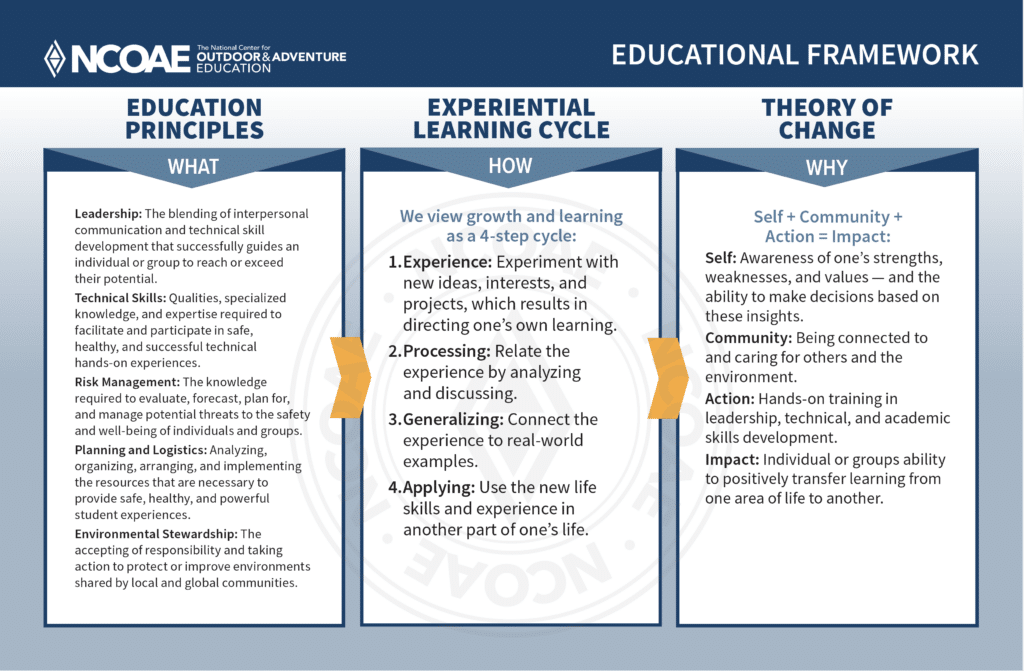
At NCOAE, we are undeniably invested in teaching technical outdoor skills, the science of applying risk management to wilderness and backcountry expeditions, and planning and logistics — the cornerstones of living safely and in relative comfort during an adventure-based expedition. Our course areas are spread across the globe and provide a unique context to engage in lessons on environmental stewardship and Leave No Trace’s principles of outdoor ethics. However, one of the top areas upon which we focus during an NCOAE expedition is leadership.
Our students are guided to process, generalize, and apply what they are experiencing during an NCOAE program, with the ultimate objective of (more…)
Maintaining Resilience and Mental Health in the EMS Profession
Emergency MedicineThe suicide rate among emergency medical service (EMS) professionals rose a shocking 38 percent since 2009, according to a study published in the Western Journal of Emergency Medicine. But as shocking as that statistic is, it should come as no surprise.
As an emergency medical technician (EMT) or paramedic, you typically work a five-day rotation of 12-hour shifts (days or nights). You may start the week working Monday and Tuesday and then have Wednesday and Thursday off. You spend half your first day off catching up on sleep, doing chores, and running errands. You’re free the next day, but pretty much alone because everyone you know is at work or school or busy with other normal weekday obligations.

As a result, you likely lack the social connections many of us rely on for emotional support and psychological well-being. Come Friday, Saturday, and Sunday — when your friends and family are off work — you’re back on the job, providing critical medical care in highly stressful situations involving people who don’t always treat you with the respect and appreciation you deserve. And you have to perform this service with a smile on your face, because you don’t want a complaint on your record.
To make matters worse, emergency medical care leaves no room for mistakes. Quality assurance (QA) and quality improvement (QI) programs ensure that Monday morning quarterbacks are always looking over your shoulder to spot mistakes and offer their criticism and sage advice from their comfortable seats along the sidelines.
It’s Getting Worse Instead of Better
Thanks to high healthcare costs and doctor shortages, many people don’t have access to (more…)
2023 Outdoor Industry Conferences for Outdoor Educators
ConferencesAs we do each year, we are once again taking advantage of this space to inform you about opportunities for you, your staff, and your organization to participate in professional development, networking, and business growth and development available at upcoming outdoor industry conferences.
In this edition, we are spotlighting nine events taking place between now and the end of this year, as well as bringing to your attention six more events scheduled for the first part of 2024 that might be worthwhile marking on your calendar.
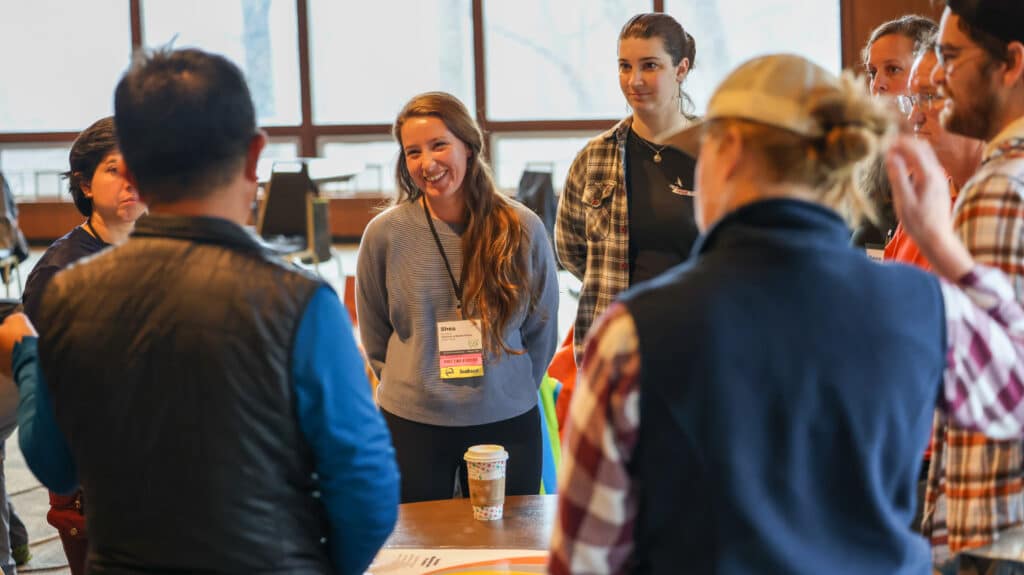
5TH ANNUAL OUTDOOR ECONOMY CONFERENCE
Sept. 18-21, 2023 | Cherokee, North Carolina
Website: https://outdooreconomy.org
Why you should attend: This in-person, multi-day event is designed to foster intentional connections among stakeholders across the outdoor economy, igniting collaborations and catalyzing meaningful actions.
Why your company or organization should exhibit: Whether you’re a conference sponsor with booth space included in your sponsorship package or an independent exhibitor, conference organizers have curated a dynamic program that allows you and your staff to engage with the attendees while respecting the event’s other scheduled activities.
2023 OUTDOOR MEDIA SUMMIT
Sept. 24-26, 2023 | Boise, Idaho
Website: https://outdoormediasummit.com
Why you should attend: Outdoor Media Summit is where some of the brightest minds in outdoor media and marketing gather to share their tips, tricks, strategies, and warnings. If you are a marketer at an outdoor industry brand or an editor, freelancer, podcaster, or other content creator, this may be the conference for you.
WILDERNESS RISK MANAGEMENT CONFERENCE
Oct, 18-20, 2023 | Portland, Oregon
Website: https://www.nols.edu/wrmc
Why you should attend: Attend the Wilderness Risk Management Conference in order to gain practical risk management skills, network with others in the outdoor education and adventure programming industry, share field and administrative techniques, and help develop risk management standards for the outdoor adventure and education industries.
Why your company or organization should exhibit: Connect with more than (more…)
Meet the Staff: Kate Javes, NCOAE EMT Instructor, Clinical Coordinator and AHA Training Site Coordinator
Meet the TeamKate Javes has been a huge part of NCOAE’s continued success for a number of years, most recently as our EMS program director. Recently, Kate has decided to step back from that leadership role following three years of developing our Hybrid EMT training program.
In addition, Kate oversaw all of our EMT and AEMT courses as well as instructed students, helped author the first editions of the NCOAE Wilderness Medicine Field Guide and the NCOAE EMT Program Manual, and played a pivotal part in helping our organization navigate the health pandemic caused by the virus named “SARS-CoV-2” and the disease it causes, named coronavirus disease 2019 (COVID-19).
A 2003 graduate of the U.S. Naval Academy who also attended Rutgers (The State University of New Jersey) where she played Division I soccer, Kate is now taking on the duties of an NCOAE EMT instructor, teaching hybrid and in-person 21-day EMT courses, both in North Carolina and in Oregon. In addition, Kate is our clinical coordinator, working with local hospitals and EMS agencies to schedule required clinical hours for the courses in both states.
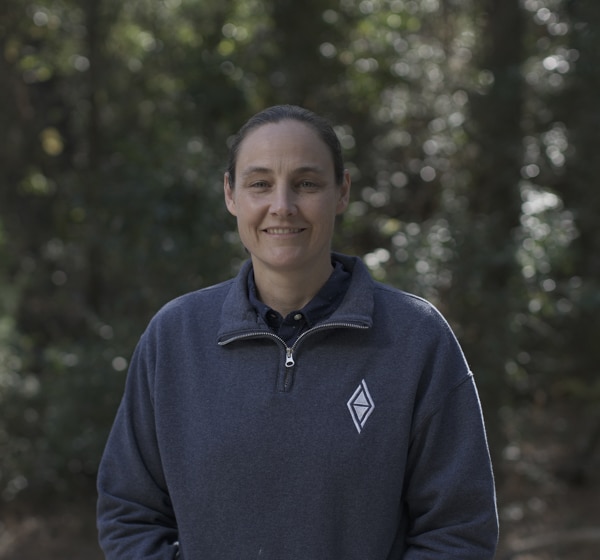
And she’s also our American Heart Association (AHA) training site coordinator. As such, she is the point of contact for the Southern Regional American Heart Education Center regarding all of our AHA courses, responsible for maintaining and submitting documentation for these courses. This is primarily for our BLS (basic life support) for Healthcare Providers courses taught as part of our EMT curriculum. It also includes HeartSaver CPR and First Aid courses as well as instructor certification and recertification.
Before joining NCOAE in 2013, this Maryland native was a paramedic for the New Hanover (NC) Regional EMS for eight years. Prior to that, she was a paramedic and firefighter for a summer for the Antarctic Fire Department. And while serving in the U.S. Marine Corps, Kate was a (more…)
Why Clinical Experience Matters in EMT Training
Emergency MedicineIn the world of emergency medical services (EMS), future EMTs and paramedics accept the reality that their immediate future includes hundreds of hours of lectures, extensive bookwork, and plenty of written tests.
Each of these students has an objective in mind for taking EMT training courses, and their reasons are many. Some are looking to start careers in the EMS profession. Others plan to use their EMT certification as a stepping stone to medical school or physician assistant (PA) school. And there are those who are uncertain about what direction their future might take, so they’re exploring their options.
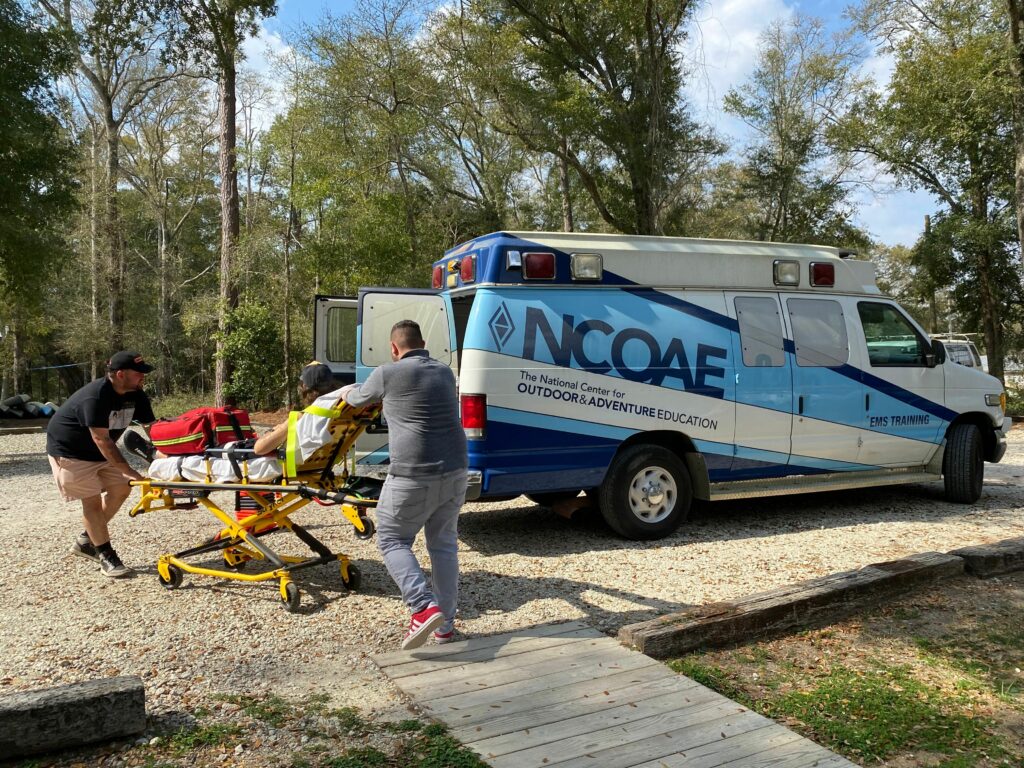
Regardless of the reason why, there are a number of things that simply can’t be “taught” in the classroom. Equally important as “book learning,” and perhaps more vital, is clinical and field experience. What is clinical experience? In the real world, clinical settings feature healthcare providers conducting actual exams and procedures on real patients. Physical examples might be a bustling hospital emergency department, a crowded local health clinic, or finding yourself hovering directly over an (more…)
Frazzled by Eco-anxiety? Find Respite in the Backcountry
Outdoor EducationAs you’ve probably heard or read, last month was the hottest June our planet has ever experienced — topping a prior record set in 2019. In fact, according to the European Union’s Copernicus Climate Change Service, the nine hottest Junes ever occurred over the past nine years.
In addition, extreme heat creates crispy conditions, and last month’s torrid temps were all the kindling needed to promote the one of the worst wildfire season in Canadian and North American history. Add to that a record-breaking cyclone in southeast Africa, heatwaves across Asia, and extreme flooding throughout the world. Oh, and this just in: June sea ice levels in Antarctic were at their lowest level since scientists began keeping records.
All of this highlights what many of us have sensed and now know for certain: Climate change is upon us — and that’s a scary situation for those of us who work in the outdoor industry. The cumulative effect of all of these climate catastrophes has created what the American Psychology Association (APA) calls “eco-anxiety.”
According to the American Psychology Association, eco-anxiety is “the chronic fear of environmental cataclysm that comes from observing the seemingly irrevocable impact of climate change, and the associated concern for one’s future and that of next generations.”
Media coverage adds to the angst
This fear is evident across our land, with hand-painted yard signs and a variety of bumper stickers on vehicles, all advocating that “Science is Real.” Newspaper editorials push for “immediate action,” or ask, “Are We Too Late?” Such articles often crowd out other headlines and newscast bulletins, which only increases our angst.
These conversations about our planet’s future — most of them based on science — have had an effect on most everyone’s emotional state. Words have weight, words plant ideas. And ideas spread faster than anything else, for good or bad.
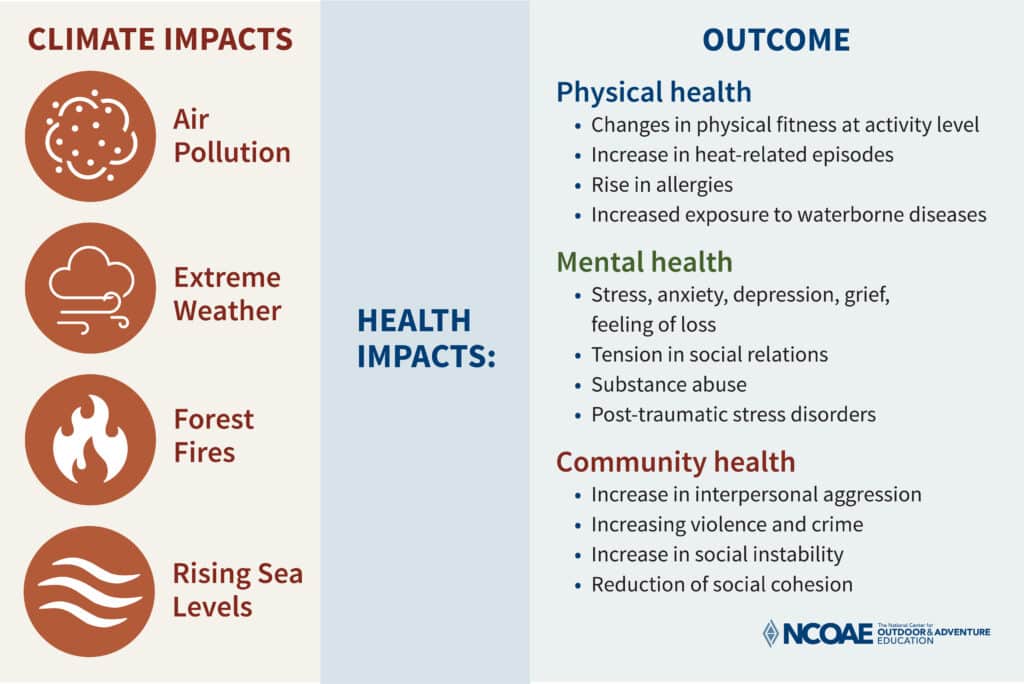
Some people pay attention, some don’t notice, and some dismiss the science out of hand, pushing the notion aside without realizing they are being affected at a cellular level by the emotions that are under the surface. This is what is happening, and sometimes we see it, sometimes we miss it, but in the end we’re all going to feel it personally, or collectively. (more…)
Why Learn Map and Compass Skills in the Age of GPS and Digital Tools?
Outdoor EducationUndoubtedly, you’re either reading this on a smartphone or you’ve got a smartphone in your pocket or sitting on the table or desk in front of you. Most likely, that device features a compass. In fact, the digital app version of one of the most ancient navigational tools in the world comes standard with most cell phones and other mobile devices these days.
Toss in Google Maps, Pacer, Apple Maps, MapMyWalk, Waze, and other directional apps that rely on GPS technology and you’ve got to ask yourself, “Why the heck should I bother using unwieldy paper maps and a handheld compass to explore the backcountry?”
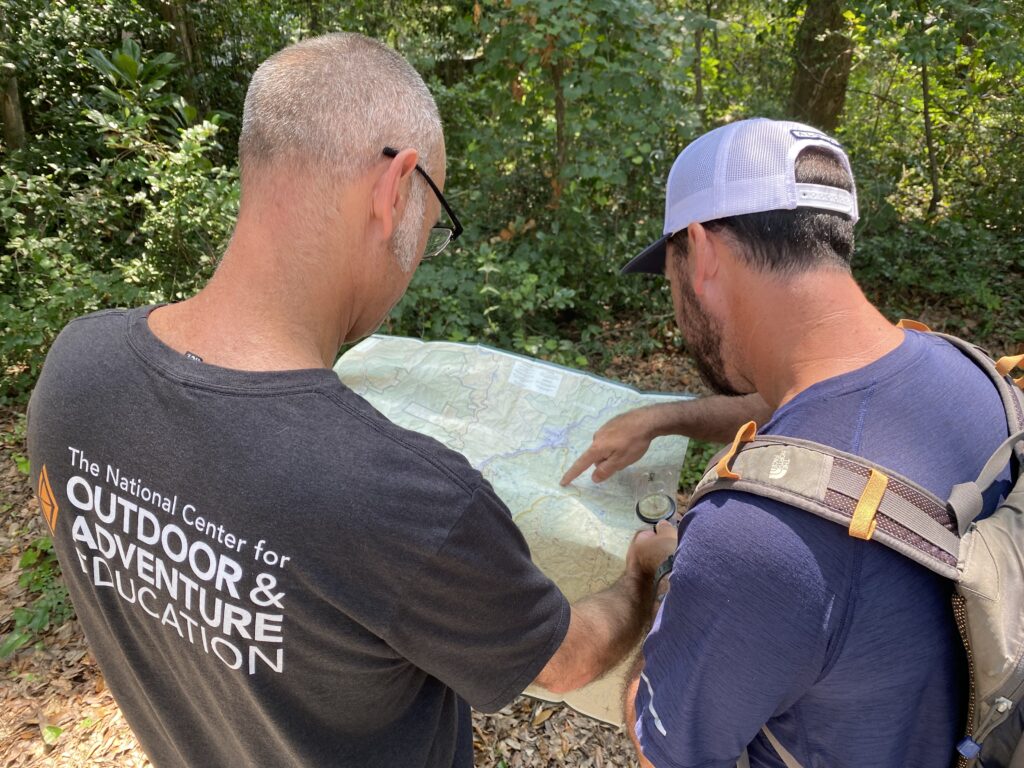
Of course, there are plenty of good reasons to master traditional map and compass skills, the most obvious being, “Damn, I got no signal.”
Here at The National Center for Outdoor and Adventure Education (NCOAE), we include lessons in basic map and compass skills on every expedition we lead. In fact, it’s part of our “First 48” programming, which teaches students important technical skills they’ll need to know within the first two days of any NCOAE backcountry expedition.
During the Fist 48, NCOAE course participants learn the basics of a baseplate compass, as well as how to (more…)
What’s the Difference Between NOLS, Outward Bound, and Other Outdoor Programs?
NOLS and Outward BoundAs an accredited outdoor and adventure education provider, we here at The National Center for Outdoor & Adventure Education (NCOAE) know that people are diligently doing their homework in their search to find the best guided wilderness trips for their children or for themselves.
And topping their list of questions is this query: What makes NCOAE different from programs like Outward Bound, programs like NOLS, and even traditional summer camps? How do you make a well-informed choice between our outdoor education company’s offerings and those offered by a summer camp, tour operator, GAP semester provider, or an unaccredited outdoor adventure programming company?
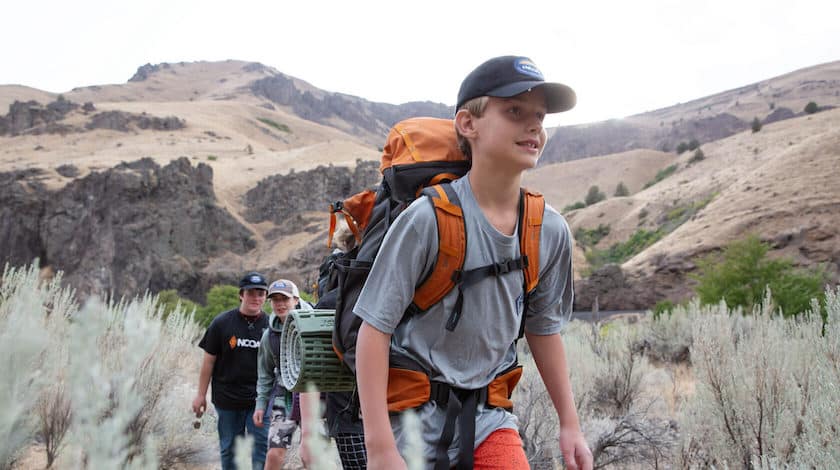
Many organizations like ours seek to set themselves apart from the top two standard bearers, namely, The National Outdoor Leadership School (NOLS) and Outward Bound (OB). Truth be told, NCOAE’s similarities to those organizations far surpass our differences. In fact, like so many other organizations, we trace our pedigree back to programs like Outward Bound and NOLS.
NOLS and OB are leaders in the field, and for very good reason. They’ve been around longer than most every other outdoor education and adventure programming organization out there. Both brands are highly recognizable and trusted, and each has trained hundreds of thousands of people — many of whom have gone on to found outdoor recreation companies of their own.
In addition, these two organizations play leading roles within the outdoor education industry, from convening the annual (more…)
Meet the Team: Wes Hawkins, NCOAE Director of Course Management and Logistics
Meet the TeamAs The National Center for Outdoor & Adventure Education (NCOAE) has grown, so have the skills and knowledge of our expertly trained and credentialed staff members. Take Wesley Hawkins, WFR, for example; a young man who grew up in the Southeast and eventually landed in Georgia where he attended Georgia College and State University.
Majoring in outdoor education with a minor in business administration, Wesley was given a class assignment that brought him to NCOAE for a site visit back in 2014. That trip resulted in Wes becoming an NCOAE intern, assisting with our outdoor programming, and eventually working his way up to lead instructor.
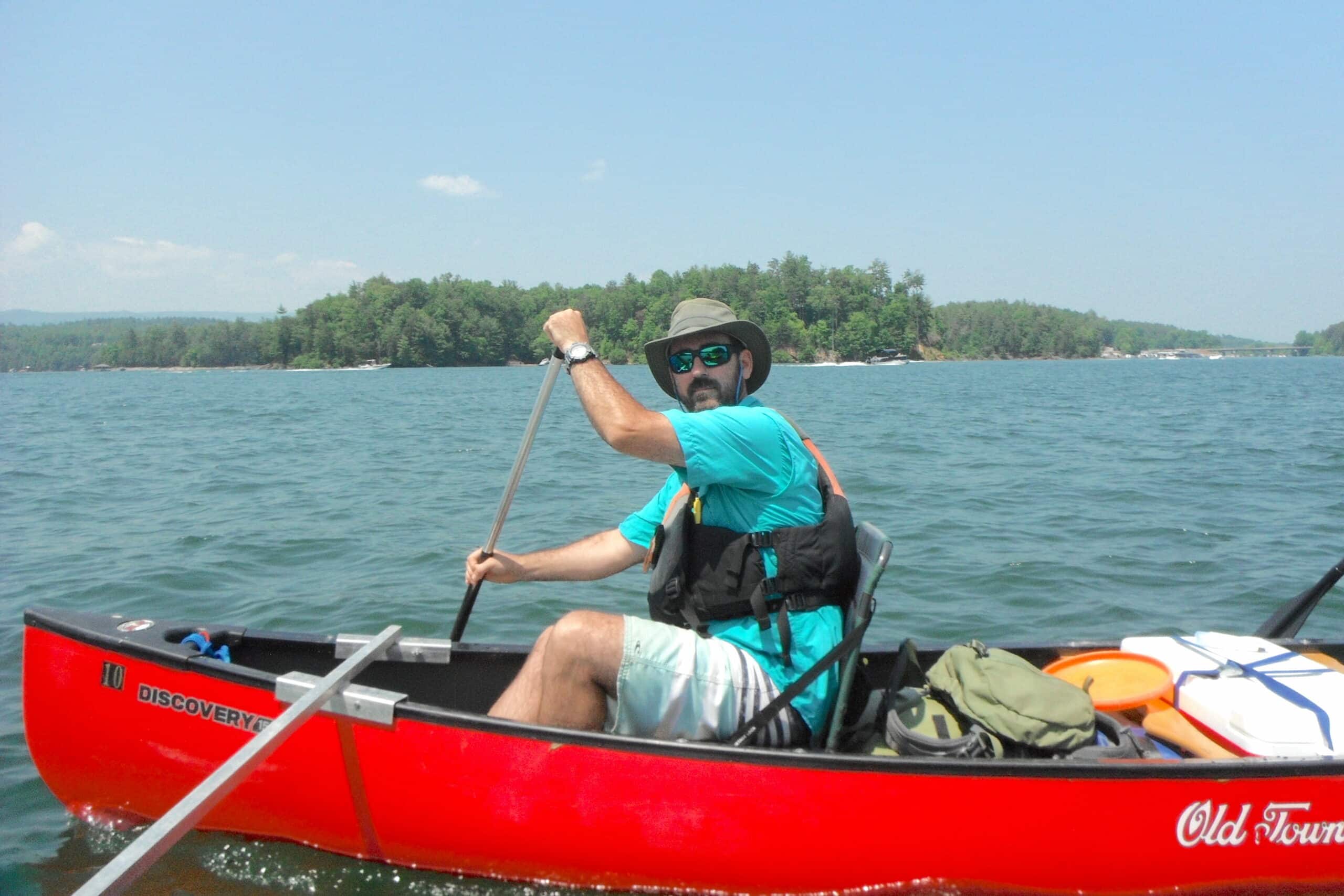
Fast forward to 2023. Wes is now our Director of Course Management and Logistics. He’s responsible for managing all course-related needs, such as transportation, gear, and food, and he makes sure our staff and students are prepared before heading out on their expeditions. He also supervises and assists staff on our backcountry wilderness courses as needed.
Shortly after Wes settled in for the upcoming summer season, we pulled him away from his duties to answer a few questions for the latest post in our Meet the Team series. Here’s what he had to say: (more…)
Trending: With Increased Participation Comes a Renewed Focus on Stewardship
Outdoor EducationThis is the last post in our four-part series on trends to be aware of in outdoor and adventure-based experiential education. In Part 1, we covered DEI (diversity, equity, and inclusion). Part 2 focused on restorative practices. And Part 3 called attention to trauma-informed learning.
Here in Part 4, we’re wrapping up the series with a call for action about stewardship.
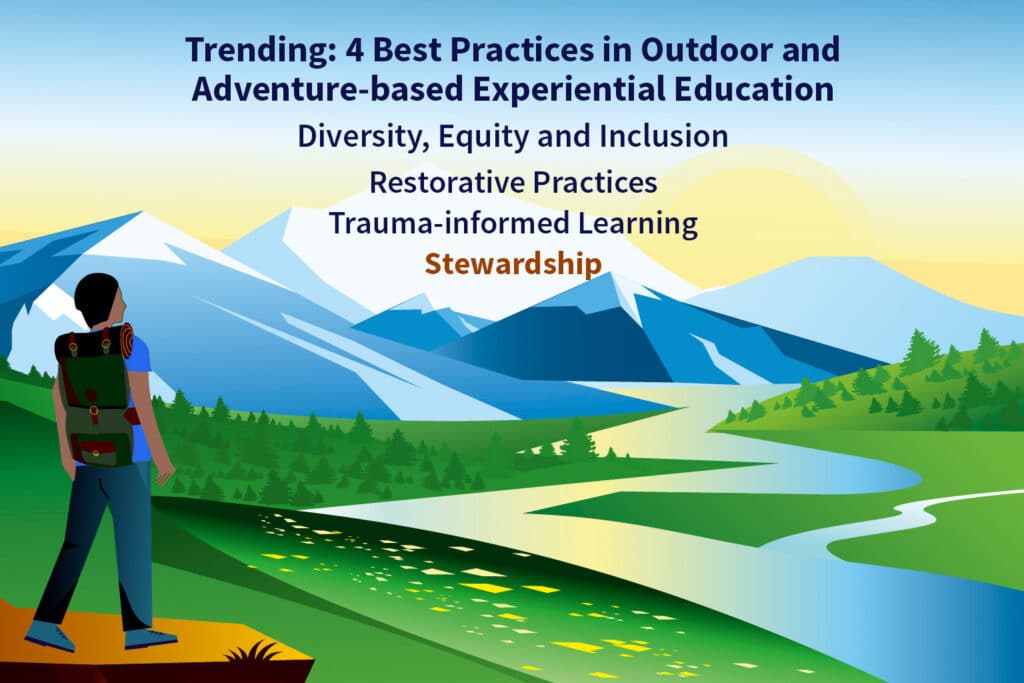
According to research from Pennsylvania State University’s Department of Recreation, Park, and Tourism Management and the Leave No Trace Center for Outdoor Ethics, 13 percent of people who regularly participated in outdoor recreation activities prior to the COVID-19 pandemic, stopped doing so once nationwide lockdowns went into effect.
At the same time, that 13 percent was offset by 20 percent more participation coming from people for whom the researchers say were likely entirely new to recreating in local, state, and national parks.
In New England alone, according to an article published in the journal for the International Association for Society and Natural Resources, overall recreation visitation increased by a whopping 61 percent during the summer of (more…)
Opinion: Instilling an Operational Risk Management Mindset in EMS
Emergency MedicineIn EMS (emergency medical services) education, generations of students have been taught to put safety first. “Don’t enter a scene if it’s not safe,” is what all EMS students are told. “Your safety is most important,” we say. “If you don’t feel safe, get out.”
That being said, there’s another concept called “Safety Third” that’s become popular in recent years, claiming that it’s really up to the individual — not the institution — to ensure their safety on a continual basis. For more details about this, please read Safety is Third, Not First, and We All Know It Should Be in the Journal of Emergency Medical Services, written by our Medical Director, Dr. Christopher Davis, MD.
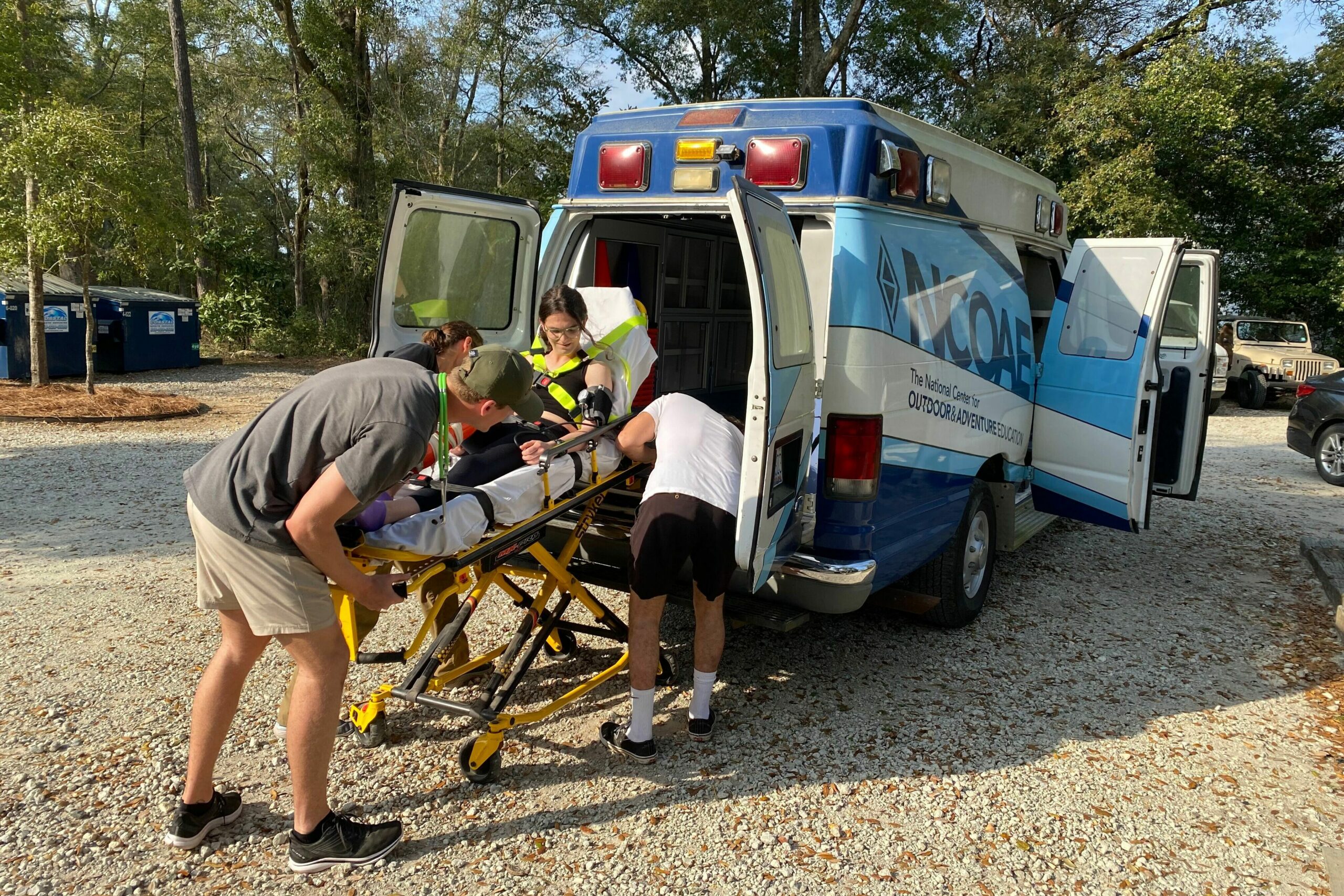
But what is “safe” and why do we put so much emphasis on it?
Personally, I think even the notion of chatting about “safety” leads us down the wrong path. Instead, we should be discussing risk management and decision making. Let’s face it. Absolutely nothing in EMS is “safe.” Emergency services personnel respond on a near-daily basis to situations that the regular population is unable (or unwilling) to handle. Why, just the simple act of driving an ambulance can be unsafe. Again, nobody becomes an EMT (Emergency Medical Technician) because they’re desperately seeking a safe career.
Most emergency healthcare providers will agree that “safety” is not really our focus. Whether they realize it or not, every EMT or paramedic who spends more than a few shifts in the field will develop their (more…)
Managing Backcountry Rain by Adopting an Expedition Mentality
Outdoor EducationIf you asked me to list the attributes that allowed Sir Ernest Shackleton’s Trans-Antarctic Expedition (1914-1917) to survive more than a year stranded in Antarctica, I point to characteristics like leadership, adaptability, teamwork, ingenuity, and perseverance.
What Shackleton and his men employed was a mindset that intentionally embraced a set of values and behaviors that are essential for success and survival in extreme conditions. Here at The National Center for Outdoor & Adventure Education (NCOAE), we refer to that as having an expedition mentality (and I’ll have more to say about that later in today’s post).

If you’ve ever spent a full week backpacking in the Appalachian Mountains of western North Carolina between May and August, chances are you encountered some rain somewhere on the trail.
That’s because that region of the country — particularly in Pisgah National Forest — encompasses areas categorized as Appalachian temperate rainforest that traditionally receive more than 100 inches of rain per year. Generally, this rain is a (more…)
Trending: Trauma-informed Learning in Outdoor-based Experiential Education
Outdoor EducationWhy We Need Trauma-Informed Learning
Time warp yourself back to early-February of 2020. We were a month into a new decade when news broke that the U.S. Department of Homeland Security had directed all flights from China be routed through one of 11 airports in the United States for enhanced screening procedures and possible quarantine.
A few months later, just as our nation’s students were preparing to end another school year, our country found itself in virtual lockdown.
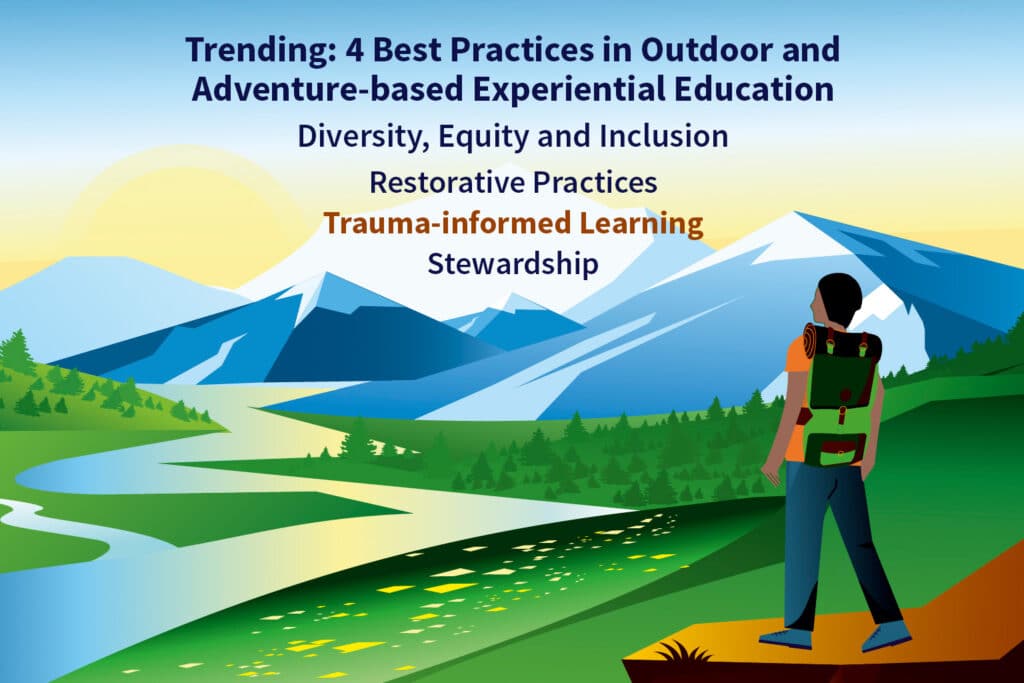
While students of all ages may experience loneliness, anxiousness, and uncertainty, the global health pandemic caused by the virus named “SARS-CoV-2” and the disease it causes — COVID-19 — had an unequivocal impact on school-age youth.
From extreme levels of disengagement and isolation to the loss of school-based nutrition and healthcare programs, we’ve only recently begun to understand how bad it really was. As more children fall behind in terms of social and academic development, the more serious the case for trauma-informed learning and trauma-informed practices in education. (more…)
Trending: Restorative Practices in Outdoor-based Experiential Education
Outdoor EducationA few weeks ago, we published Part 1 of this series, which covers what we here at The National Center for Outdoor & Adventure Education (NCOAE) view as the trending best practices to know about in outdoor and adventure-based experiential education.
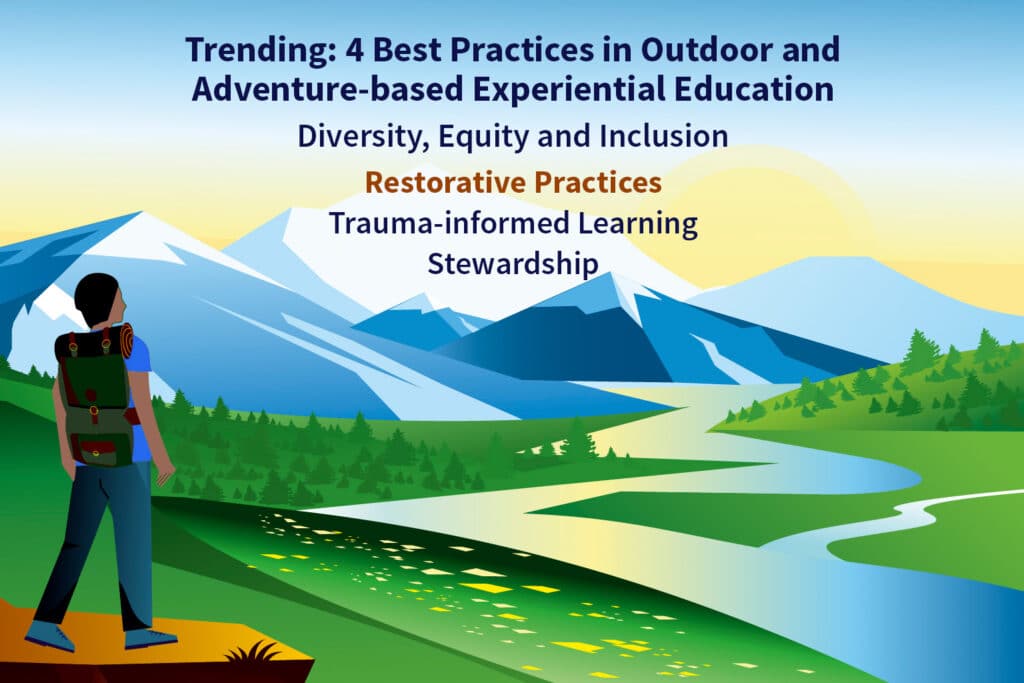
- Here, in Part 2 of this series, we introduce you to Restorative Practices, and share how they’re incorporated in the programming here at NCOAE.
- For Part 3, we will shift our attention to Trauma-Informed Learning.
- And we’ll wrap up the series in Part 4 with a discussion on Stewardship.
At NCOAE we recognize the power of the outdoors and how it can shape the lives of those who participate in our outdoor education courses and wilderness medicine trainings. Take a backcountry teen expedition for example. By experiencing hiking, climbing and paddling, we see physical obstacles turn into (more…)
Benefits To Leadership-Based Summer Camp for Teens
Summer CampOutdoor and adventure-based summer camps for teens provide a life-enriching and world-changing experience for those who participate in them. These experiences, offered by accredited adventure-based experiential and outdoor education providers like The National Center for Outdoor & Adventure Education (NCOAE), offer a unique opportunity for teens to develop personal competencies in the following four areas, as well as technical outdoor skills that will last a lifetime:
- Self
- Community
- Action
- Impact
Or, as we here at NCOAE prefer to present it:
Self + Community + Action = Impact
This formula for personal growth, development, and leadership sets us apart from a traditional summer camp, where backcountry experiences are electives and not the backdrop for everything that’s offered.
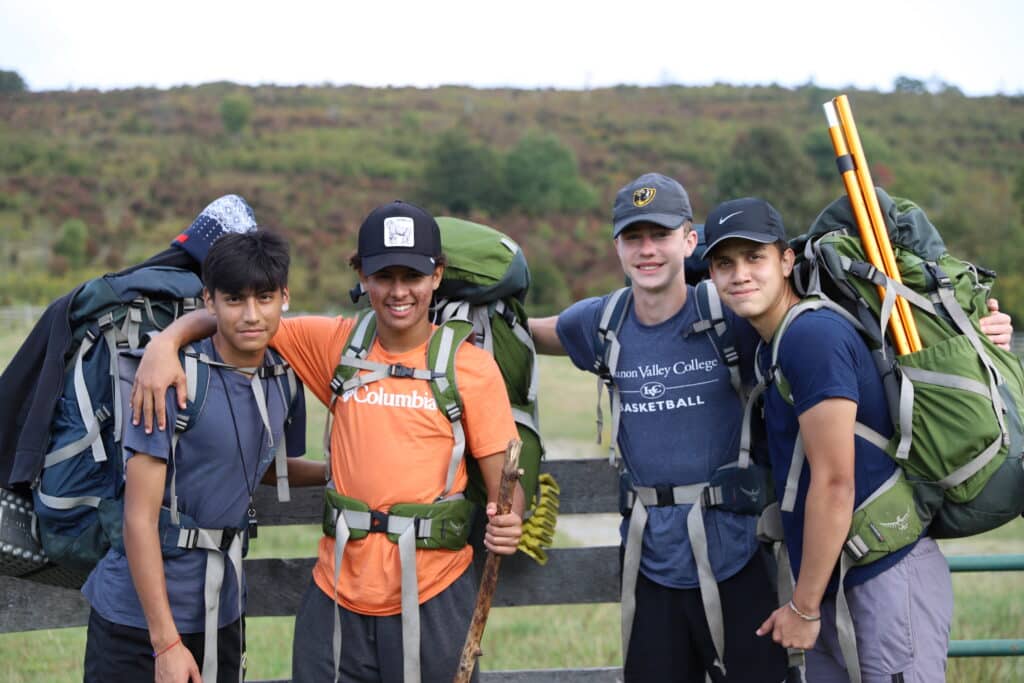
Parents of teens who choose to participate in our adventure-based summer camps often tell us their teens return home with much more than campfire-building skills. These parents report an increase in caring and empathy on the part of their teens, and a better understanding of the importance of sharing and giving. They also exhibit a greater willingness to stand up for what they believe in, taking responsibility for their actions instead of shifting the blame elsewhere. These teens have discovered that such qualities are essential for building a progressive society and making a positive impact on the world.
Outdoor and adventure-based summer camps experiences that take place in the backcountry create a sense of community and provide opportunities for intergenerational relationships. They help teens develop (more…)
Trending: 4 Best Practices in Outdoor and Adventure-based Experiential Education
Outdoor EducationA little more than three decades ago, two educators and researchers from Canada partnered with the Association for Experiential Education (AEE) on a groundbreaking book titled Safety Practices in Adventure Programming.
Simon Priest, Ph.D., and Tim Dixon, M.Ed., regarded at the time as among only a handful of leading experts in outdoor adventure education and leadership, penned what some argue was the first widely-published best practices for the outdoor education and adventure programming industry.
Known as the Red Book, due to its bright red cover, their work coincided with AEE’s foray into accreditation, inspiring outdoor education program administrators across the globe to adopt common approaches to the safety and well-being of their clients and staff while facilitating adventure-based programs.
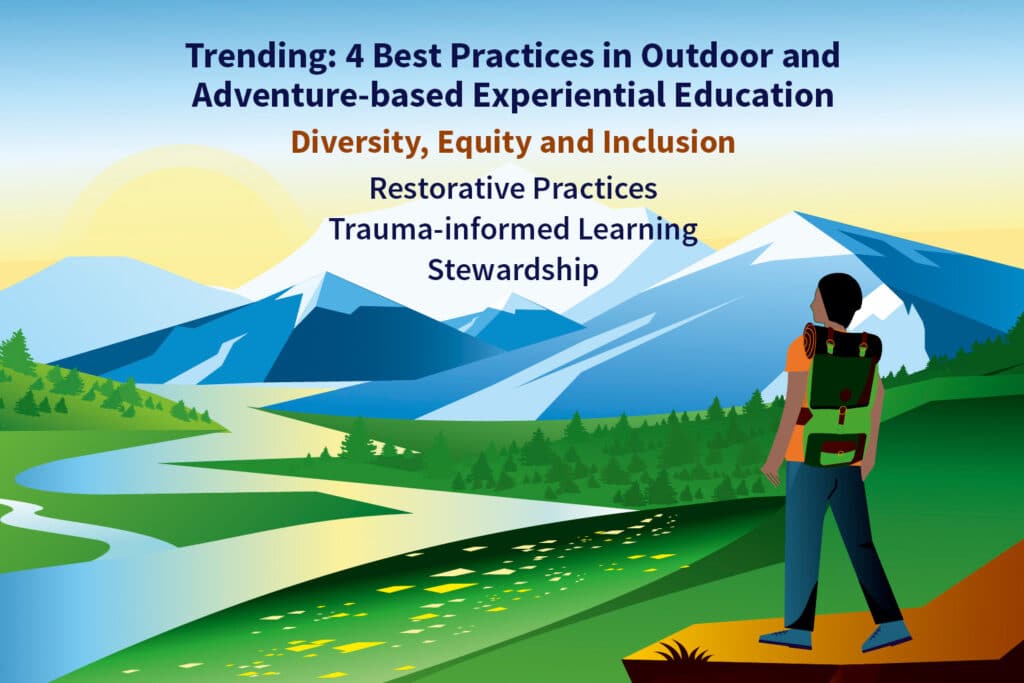
And while it likely isn’t fair to suggest that best practices didn’t exist within our sector of the outdoor industry before Priest and Dixon’s Red Book, the publication of that forward-looking guidance saw the rapid adoption of such practices for our sector like no other. Fast-forward 33 years, and we find most all outdoor education or adventure-based programming operations pay close attention to best practices in the realm of safety and risk management.
In today’s post, I’m pleased to call attention to four areas with associated best practices for which all outdoor educators and adventure-based organizations should be aware. After hearing from college and university outdoor program managers, organizational leaders, and by performing research of our own, four themes rise to the top as trends and best practices in outdoor education and adventure programming to follow over the next year: (more…)
Opinion: There’s Nothing “Basic” About an EMT
Emergency MedicineIt’s been more than a decade since the National Registry of Emergency Medical Technicians (NREMT) stopped using the certification designations EMT-B and EMT-Basic.
The change from EMT-B to EMT was not just in title. It was accompanied by an expanded set of knowledge and skill expectations for emergency medical technicians (EMTs). There is nothing “basic” about what an EMT learns or the skills he or she can perform. And they’re certainly not “Ambulance Drivers.”
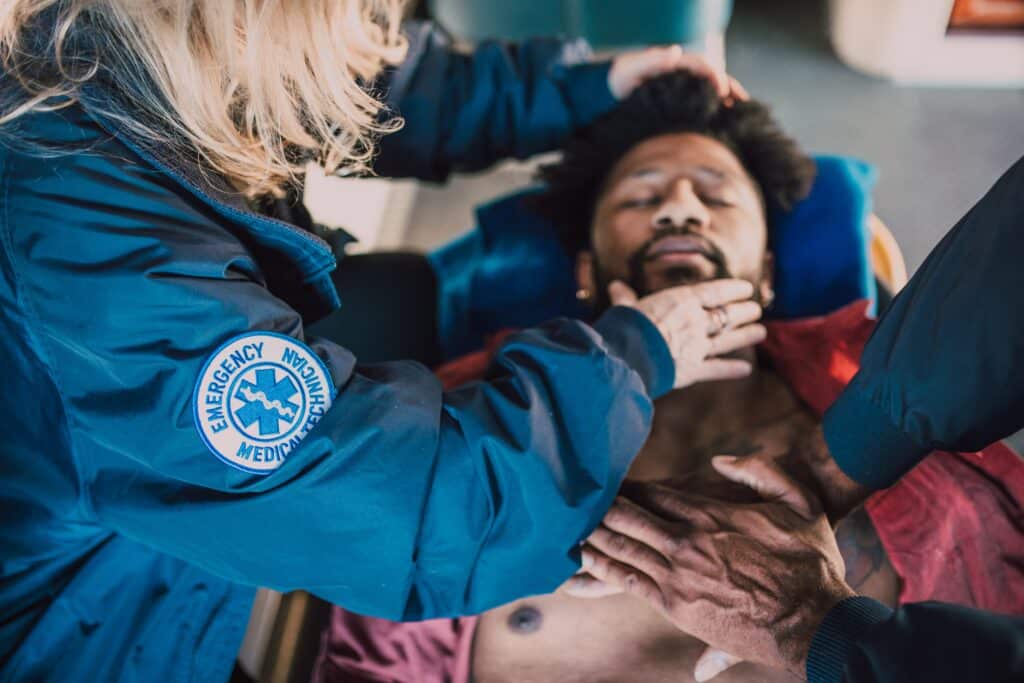
Most states have made the transition to the new title, but many emergency medical service (EMS) providers continue to refer to some EMTs as “Basics.” Maybe it’s out of ignorance, or just an antiquated habit, but we need that to stop. It’s much more than just an inaccurate designation — it’s misleading to the public and gives the wrong impression regarding care and capabilities.
Looking Back at EMT Designations
The early terminology came from a haphazard system of state-by-state naming conventions. The NREMT itself started out with an “EMT-Ambulance” or “EMT-A,” later adding an “EMT-Non-Ambulance” designation. As a result of this confusing (more…)
What Outdoor Industry Pros Recommend You Keep in Your First-Aid Kit
Wilderness MedicineHaving a first aid kit handy is always a good idea, but what should it contain? The answer to this question really depends on what you plan to be doing. There are different considerations for a kit that you carry in your car versus one that you grab up for a mountain bike ride or take with you on an overnight or multi-day backcountry expedition.
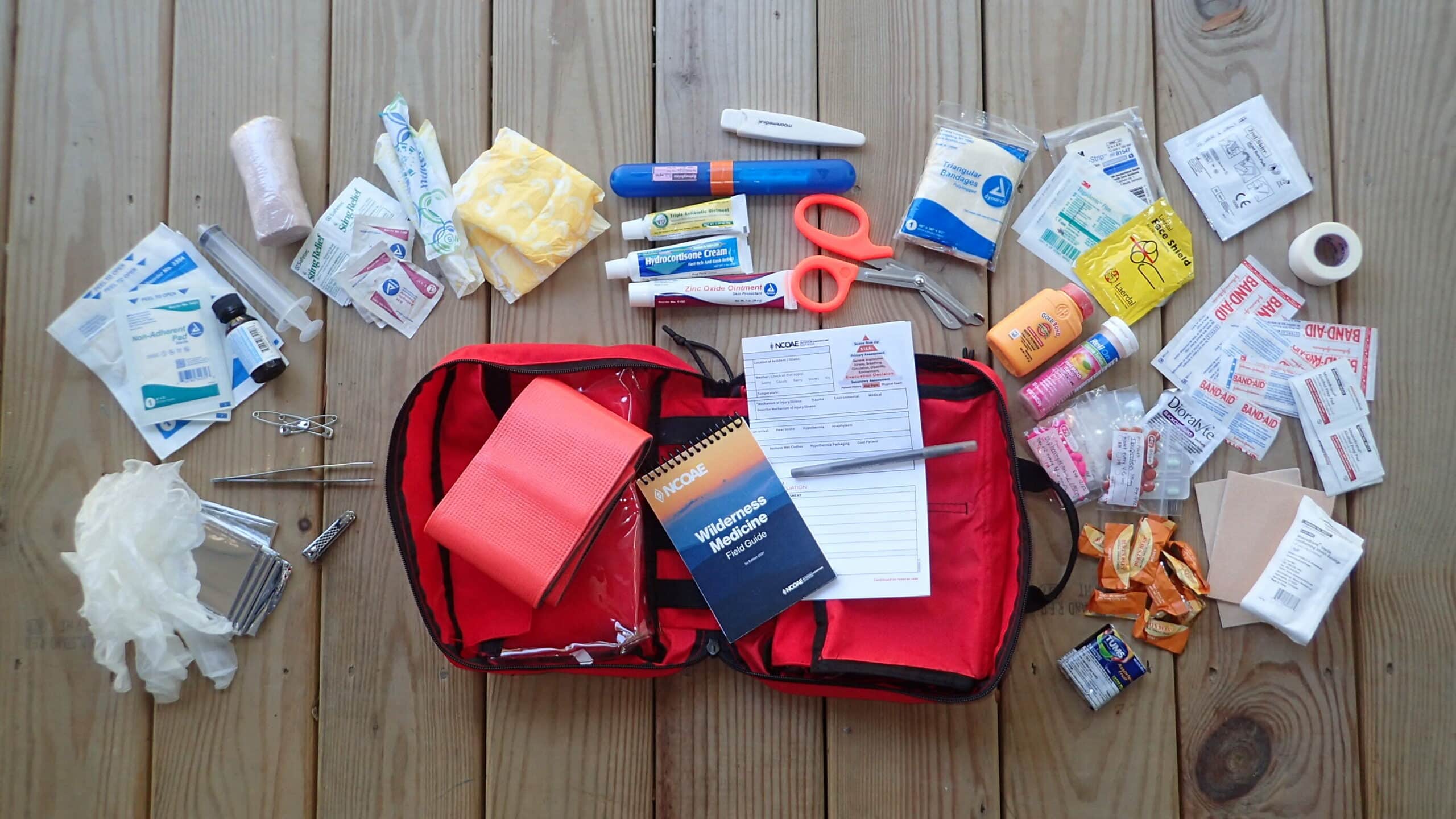
Of course, you could purchase pre-stocked first-aid kits for a variety of purposes. Retailers and companies like REI, Adventure Medical Kits, and even Amazon and Target all sell first aid kits that may be right for your purposes. These can be convenient, and many are vacuum sealed to save space. However, they can be expensive and may contain less useful items for your purposes.
Putting together your own first aid kit lets you decide how many and what kinds of things you want. It also gets you thinking about what you’ll have on hand should a backcountry emergency occur.
Pro Tip: Make sure your backcountry first aid kit is waterproofed and check it regularly to make sure things haven’t been damaged or have expired.
Here are some things to consider when creating your own backcountry first aid kit:
What injuries/situations are likely to occur? (more…)
Let’s Add Humble to the 5 ‘Umbles’ of Hypothermia
Risk ManagementHypothermia is deadly. There, I said it! This potentially dangerous drop in body temperature is commonly defined as a core body temperature below 95 degrees Fahrenheit (35 degrees Celsius) after dropping from a healthy temperature of about 98.6 degrees Fahrenheit or 37 degrees Celsius.
The slightest variance from the “normal” range can disrupt the body’s ideal operating conditions, known as homeostasis. The negative impact of hypothermia on homeostasis is dramatic and therefore should not be underestimated. Hypothermic progression follows a path, moving first more slowly, then more rapidly toward non-movement and when properly treated, onto death.
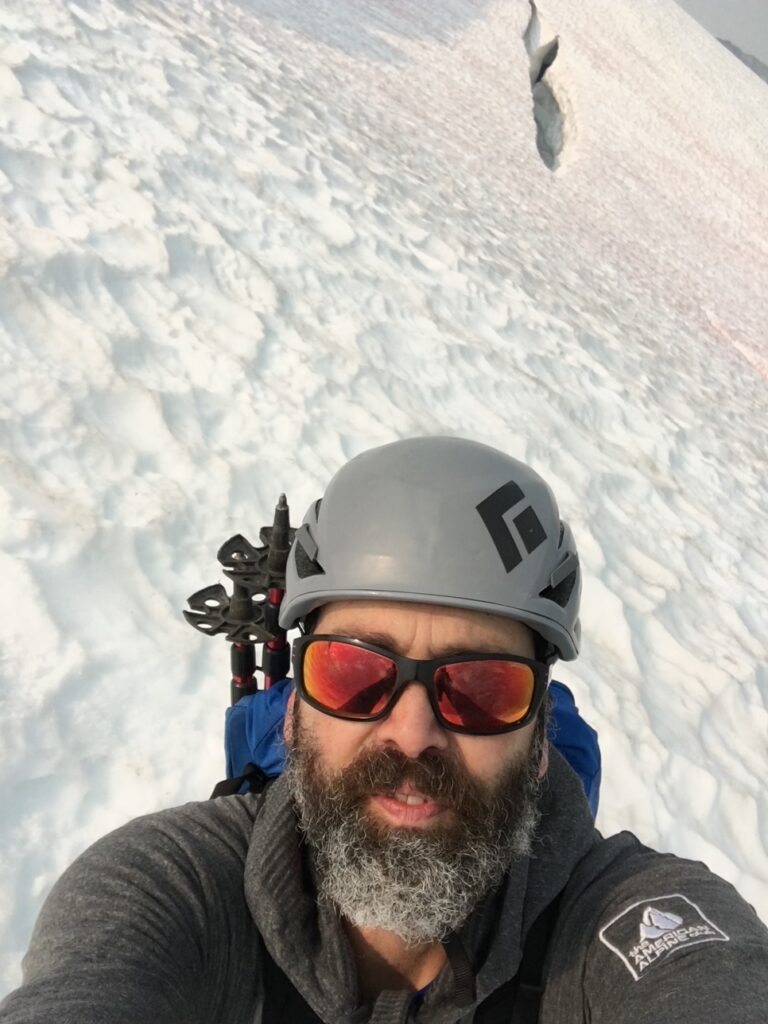
Movement is life. Living things grow, evolve, learn and work to improve their circumstances. Non-living things hold fast to current circumstances unless acted upon by an outside force. As we’ve all experience, movement generates warmth, and this case, it combats hypothermia. A creature that has the appropriate amounts of items necessary for movement will generally maintain a body temperature conducive for life.
These items required for movement include nutrients, health, fitness, clothing, and sometimes technical outdoor tools such as an ice axe and crampons. A breakdown of these items leads to decreased movement and reduced temperature. In this post, we will look at the hypothermic process using the five umbles: (more…)
TALK TO US
Have any further questions about our courses, what you’ll learn, or what else to expect? Contact us, we’re here to help!